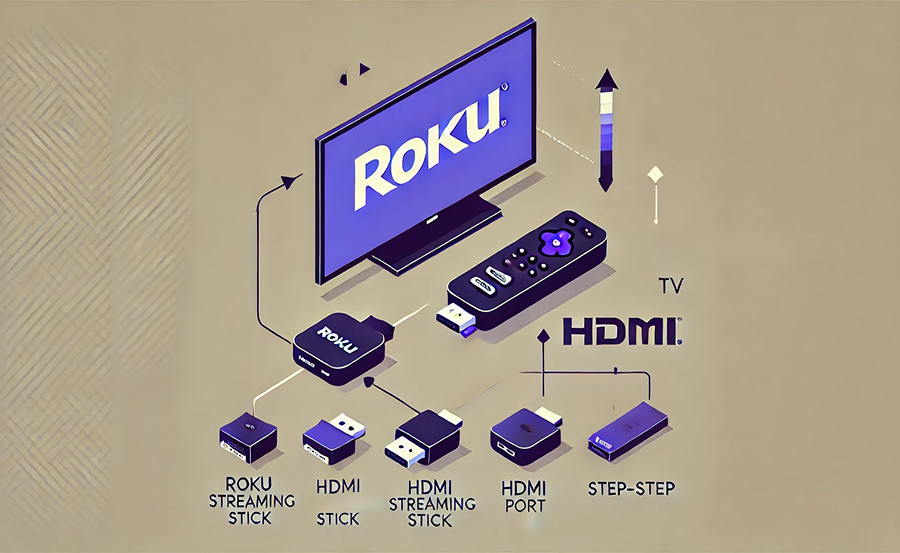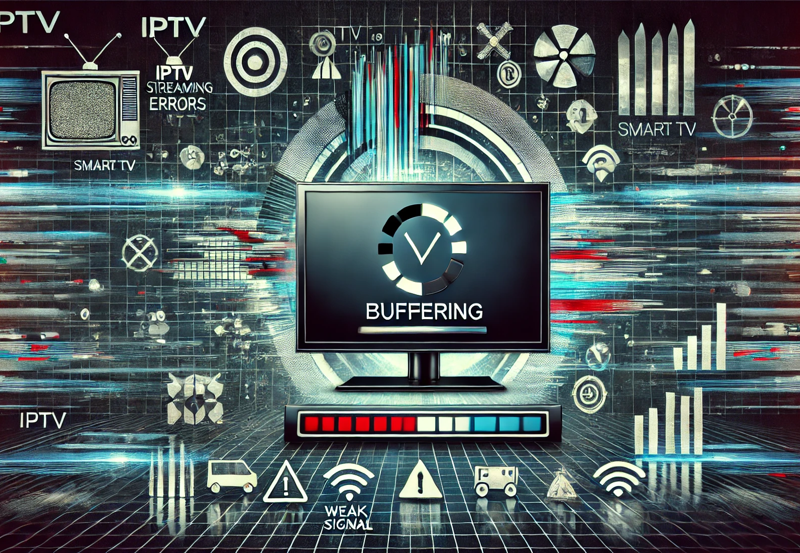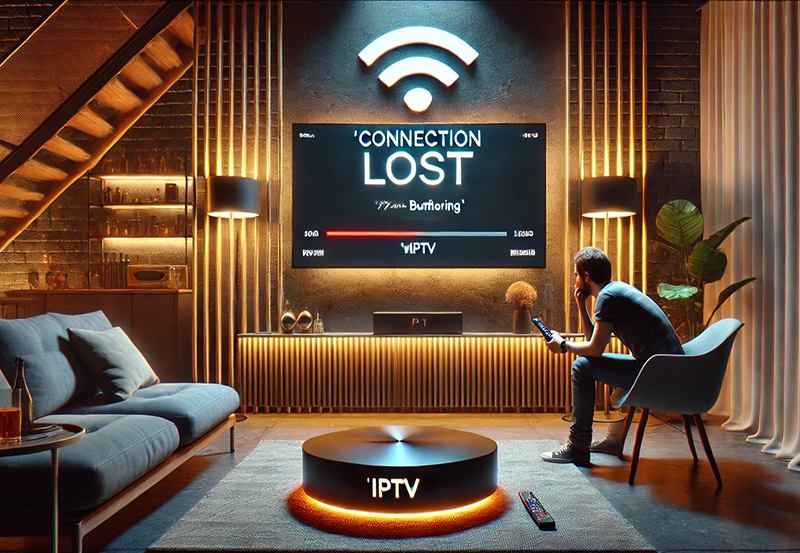In a world where convenience and flexibility define our entertainment choices, IPTV—Internet Protocol Television—has emerged as a game-changer. Yet, like any other technology, it doesn’t come without its challenges. Have you ever found yourself in the middle of an exciting sports game, just to be left hanging due to an unexpected disconnection? If so, you’re not alone. Understanding the technical roadblocks of IPTV for sports streaming and how to install IPTV can significantly enhance your viewing experience. This article dives into the common issues behind IPTV disruptions and how you can master your IPTV entertainment setup effectively, ensuring seamless streaming from start to finish.
Understanding IPTV Technology
IPTV stands for Internet Protocol Television, which delivers television content over Internet networks. This revolutionary technology is gaining traction due to the flexibility and quality it offers viewers. But what exactly makes it tick? Understanding the backbone of IPTV could be the first step toward solving disconnection issues.
The Fundamentals of IPTV
At its core, IPTV uses the internet to stream live TV channels and on-demand video content, bypassing traditional broadcast methods. IPTV services typically require a broadband or fiber internet connection to function optimally. By converting traditional signals into digital form and distributing them via IP, IPTV offers a customized viewing experience.
An integral component of IPTV services is the set-top box or a similar device, which decodes the transmitted signals into a format that your television can display. Understanding how these components work can help in troubleshooting later on.
Different Types of IPTV Services
IPTV services are usually broken down into three main categories:
- Live IPTV – Streaming live TV broadcasts as they happen.
- Video on Demand (VOD) – Accessing video content from an extensive library, similar to Netflix or Hulu.
- Time-Shifted TV – Watching previously broadcast TV shows at a later time, which is especially useful for sports enthusiasts.
These categories offer varied experiences and issues. Live IPTV, for instance, might be more prone to buffering during high-demand sports events compared to VOD, which can be downloaded and buffered ahead of time.
Common Causes of IPTV Disconnections
Experiencing disruptions can lead to frustration, especially if you’re enjoying an anticipated game. To troubleshoot effectively, it’s crucial to look into the potential causes of these interruptions.
Network Instability
Network instability tops the list of causes for IPTV disconnections. A fluctuating internet signal can disrupt the steady data flow necessary for uninterrupted streaming. Imagine trying to fill a bucket with a hole in it; similarly, a weak signal can severely impact your viewing experience.
Bandwidth Limitations
Bandwidth can sometimes be a silent adversary. With multiple devices sending and receiving data in a household, the competition for bandwidth can lead to reduced streaming quality or drops. Are all devices in your home fighting for internet supremacy? It might be worth looking into.
Server Overload
During popular sporting events, the demand to access IPTV services can skyrocket, leading to server overload. This increased load can cause interruptions as servers struggle to manage data requests efficiently.
Providers should have scalable infrastructure, but sometimes, even the most prepared services can’t handle unexpected spikes in demand.
Overcoming IPTV Disruptions
Not all is lost when you face an IPTV disconnection. Several measures can help alleviate the situation and improve your service reliability.
Optimizing Your Internet Connection
Prioritize optimizing your internet connection to improve IPTV performance. Switching to a wired Ethernet connection instead of Wi-Fi can significantly enhance the stability and speed of your internet connection.
Investing in a higher bandwidth plan might also be beneficial. Comparing ISP plans for better service guarantees can also make a big difference in performance.
Strategic Device Management
Regulating device usage on your network can prevent excessive bandwidth competition. Consider staggering or limiting active devices during crucial streaming periods; it might be worthwhile to pause other high-data activities like large downloads when you’re streaming a live sports event.
Troubleshooting IPTV Software and Hardware
Ensure your IPTV software and set-top box are updated to the latest versions. Outdated software can often be the culprit behind performance issues. Rebooting your set-top box and router can sometimes clear temporary glitches and stabilize connections.
Choosing the Right IPTV Service Provider
Not all IPTV services are created equal. Picking the right provider can make or break your streaming experience.
Evaluating Provider Reputation
Research extensively before committing to a provider. Customer reviews can provide insights into service reliability and quality. Providers with a history of consistent performance and wide content availability are typically better choices.
Investigating Content Offerings
Check if the provider offers a comprehensive list of sports channels and events. Many providers specialize in sports streaming, offering exclusive content that might not be available elsewhere.
Remember, the broader the lineup, the better the entertainment value you’ll get from your service.
Securing Your IPTV with a VPN
Securing your IPTV with a VPN can not only protect your data but also enhance your streaming experience by potentially overcoming geo-restrictions.
Benefits of Using a VPN
A VPN can mask your IP address, offering anonymity and protecting data from potential cyber threats. Additionally, a VPN can help access region-locked content by routing your connection through servers in different countries.
Choosing the Right VPN
When selecting a VPN service, consider factors such as speed, server locations, and security features. Not all VPNs are created equal; some can significantly hamper streaming speeds.
Future of IPTV: What to Expect
As technology evolves, IPTV is likely to become even more integrated into our daily viewing habits, with 5G and advanced codecs promising seamless streaming experiences.
Emerging Technologies
Technologies like 5G are set to revolutionize IPTV by offering faster and more reliable connections. Enhanced video codecs will also play a significant role in delivering better-quality streams with less data usage.
Increased Personalization
Expect greater personalization in IPTV services, with advanced algorithms learning viewer preferences to provide tailored content recommendations.
Mastering Your IPTV Experience
By understanding the intricacies of IPTV and addressing common challenges, you can transform your streaming experience. With proper setup and provider choice, coupled with security and optimization strategies, you’ll be better positioned to enjoy non-stop entertainment with less hassle.
FAQ Section

Why does my IPTV keep buffering?
Buffering can be caused by a weak internet connection, high bandwidth usage from multiple devices, or issues with the IPTV server. To resolve this, check your internet speed, reduce the number of devices using the network, or contact your IPTV provider.
Buy 1 Year IPTV Subscription and Enjoy Unlimited Content
How can I improve IPTV streaming quality?
Improving your IPTV streaming quality can involve switching to a wired connection, updating your hardware and software, and potentially upgrading your internet plan if necessary. Using a VPN might also help if you are experiencing geo-blocking issues.
What equipment is needed to install IPTV?
To install IPTV, you’ll typically need a reliable internet connection, a compatible set-top box or a smart TV with IPTV apps, and an active subscription to an IPTV service. Ensuring your equipment is up to date can enhance your overall experience.
Can a VPN affect my IPTV performance?
While a VPN can protect your privacy and help access geo-restricted content, it can also slow down your internet speed, impacting your IPTV performance. Choosing a fast, reliable VPN is crucial to maintaining quality streaming.
Is IPTV legal to use?
IPTV services can be legal or illegal depending on their registration and content offerings. Always ensure you are subscribing to a legitimate service, as accessing unauthorized content could have legal repercussions.
What are the best IPTV providers for sports streaming?
Several IPTV providers specialize in sports streaming, such as Sling TV, FuboTV, and YouTube TV. It’s essential to review their offerings, including channel availability and broadcast rights, to ensure they meet your sports viewing needs.
Do I need a super-fast internet connection for good IPTV performance?
While a faster internet connection can lead to a smoother IPTV experience, it isn’t the sole factor. Network stability and proper device management are equally important. For HD streaming, speeds of at least 10 Mbps are recommended, while 4K streaming may require higher rates.
How to Deal with IPTV Compatibility Issues on Different Devices





